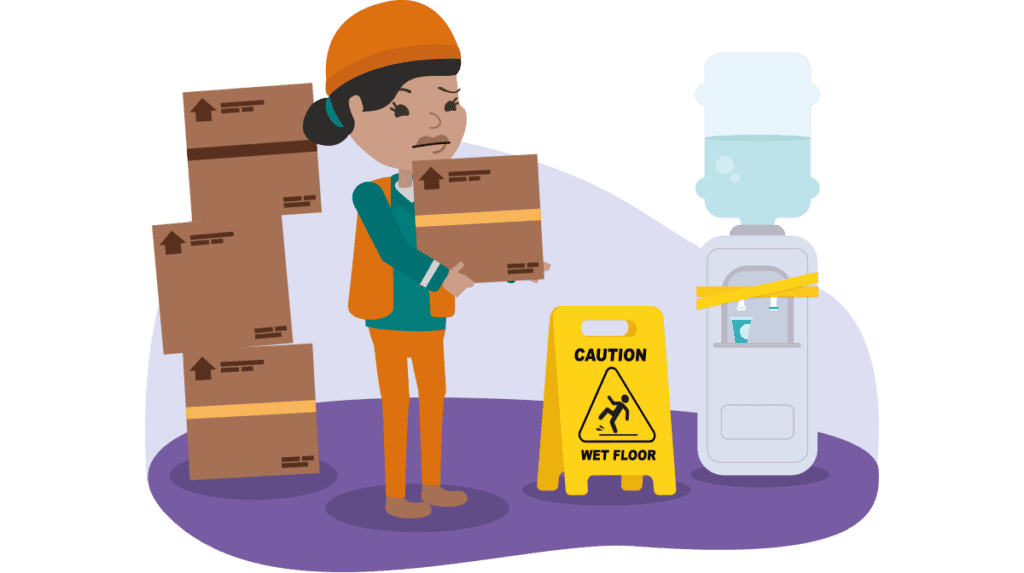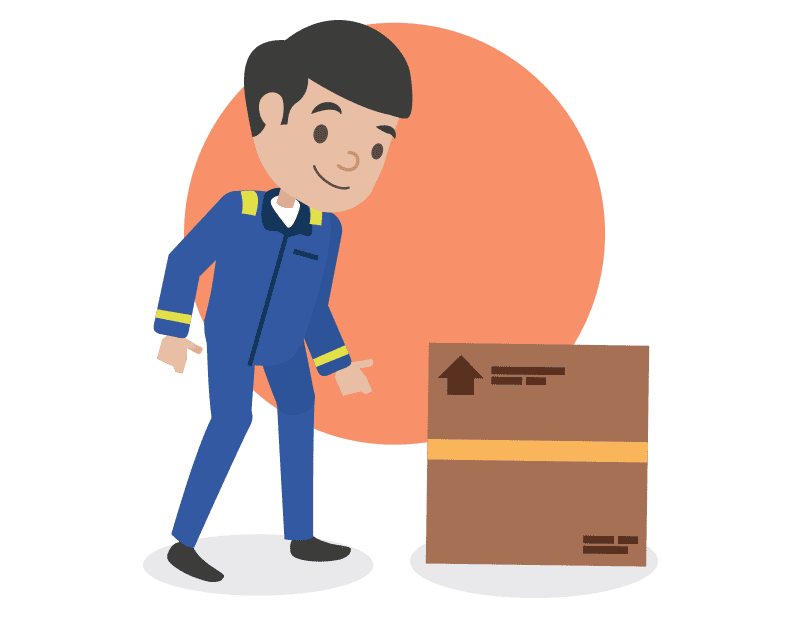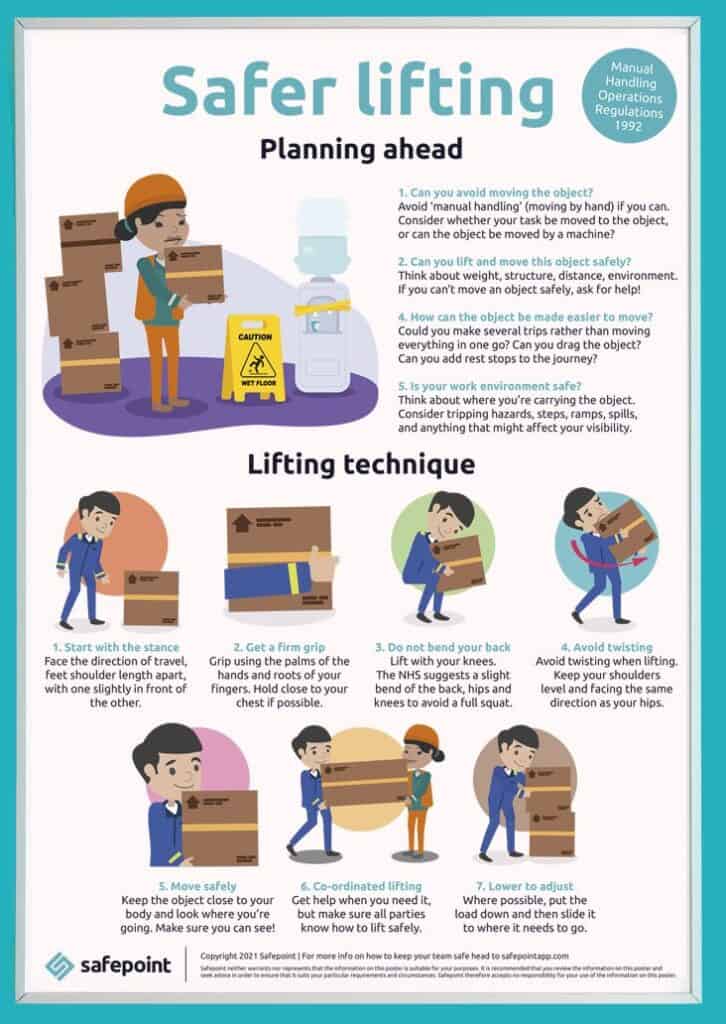‘Handling, lifting or carrying’ is the second-largest cause of injuries for UK workers (after slips, trips and falls). Injuries caused by ‘manual handling’ can lead to short and long term ill-health, as well as a loss of productivity.
In this article, we’ll be sharing some advice on how to lift and move objects safely, as well as how to create a safer environment for your team to work in.
If you find the advice in this article helpful, you can download a free Safer lifting poster for your workplace!

1. Can you avoid moving the object?
Avoid ‘manual handling’ (moving by hand) if you can. Consider whether your task can be moved to the object, or if the object be moved by a machine.
2. Can you lift and move this object safely?
Think about weight, structure, distance and your environment.
If you can’t move an object safely, ask for help!
4. How can the object be made easier to move?
Could you make several trips rather than moving everything in one go? Can you drag the object? Can you add rest stops to the journey?
5. Is your work environment safe?
Think about where you’re carrying the object. Consider tripping hazards, steps, ramps, spills, and anything that might affect your visibility.

Face the direction of travel, and position your feet shoulder length apart, with one slightly in front of the other.

Grip using the palms of the hands and roots of your fingers. Hold the object close to your chest if possible.

Lift with your knees. While bending your back can be dangerous, The NHS does suggest a slight bend of the back, hips and knees to avoid a full squat.

Avoid twisting when lifting. Keep your shoulders level and facing the same direction as your hips.

Keep the object close to your body and look where you’re going. Make sure you can see!

Get help when you need it, but make sure all parties know how to lift safely.

Where possible, put the load down and then slide it to where it needs to go.

Accidents happen, that’s why we’re releasing this new series of health and safety posters –to help you create the safest possible environment for your team.
But what if an accident happens and no one’s about to help? Safepoint provides innovative solutions for those who work alone or in high-risk roles such as discreet panic alarms, an award-winning app and a 24/7 remote supervision service.
To find out how we can keep your team safe, get in touch below.
Note: Safepoint neither warrants nor represents that the information in this article is suitable for your purposes. It is recommended that you review the information in this article and seek advice in order to ensure that it suits your particular requirements and circumstances. Safepoint therefore accepts no responsibility for your use of the information in this article.
Award-winning safety management tools and a fully accredited response team.